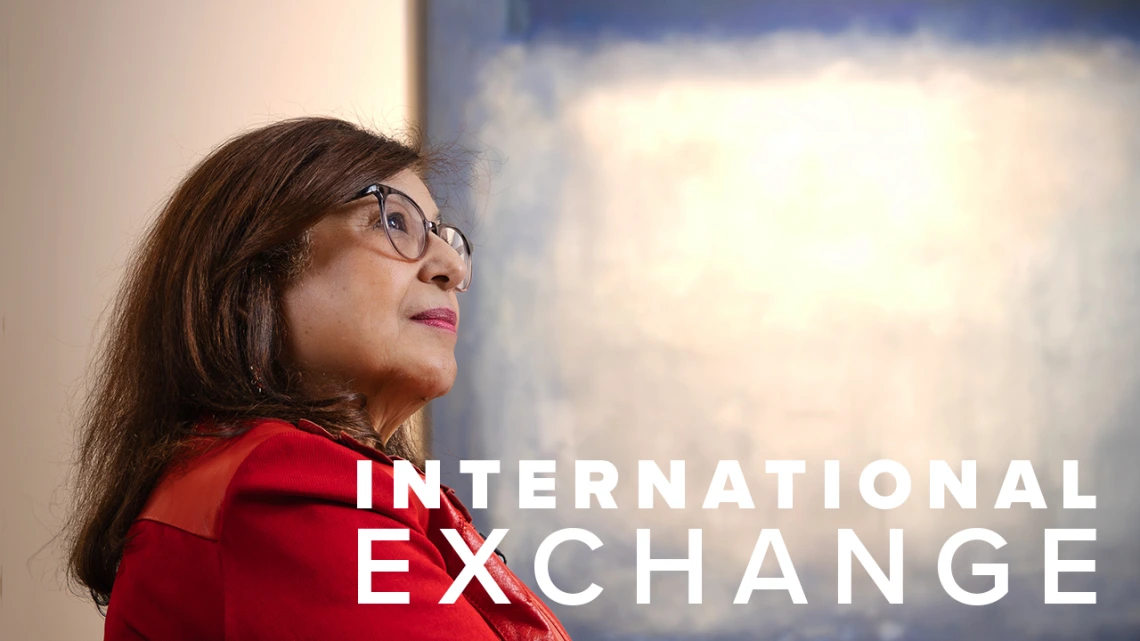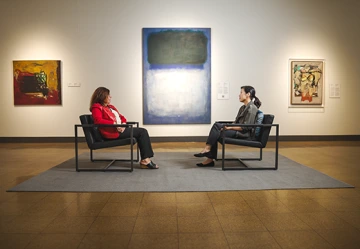Dr. Iman Hakim discusses the power of cultural understanding in public health on ‘International Exchange’

In the fourth episode of International Exchange, Dr. Jenny Lee, vice president for Arizona International and dean of International Education, sits down with Dr. Iman Hakim, dean of the Mel and Enid Zuckerman College of Public Health, to discuss how her upbringing in Egypt, early medical career, and global collaborations continue to shape her approach to public health leadership.
Born in Port Said, a Mediterranean city at the mouth of the Suez Canal, Hakim reflects on the transformative power of education in her family. “I give credit to my grandfather,” she said, noting that he ensured her mother and aunts pursued higher education at a time when it was uncommon for women to do so. She shared that she studied at a French-language school before pursuing medical training at Cairo University. Hakim later began working in both pediatrics and public health, focusing on underserved rural communities. It was there that she learned some of the most powerful lessons about cultural humility. “I learned a lot because I didn’t live in rural areas before,” she said. “I learned the language they use, the beliefs they have—not to change their beliefs, but to make sense of them scientifically so you can make changes.”
That approach carried with her to the University of Arizona, where she helped shape the College of Public Health and later founded the Global Health Institute. The institute supports partnerships and sends students to work in countries including Tanzania, Ireland, Egypt, Mexico, and Guatemala. “We are dedicated to training the next generation of healthcare professionals, locally and globally,” Hakim said. “In the long term, this will make a difference. They can solve global health problems together.”

Lee praised this model of collaboration: “These students serve as such important bridges,” she said, noting that the relationships built through these exchanges lead to shared understanding and greater capacity to address cross-border issues like pandemics and climate change.
Throughout the conversation, Hakim emphasized that public health must be grounded in cultural understanding. Her message is clear: meaningful health interventions must be both evidence-based and culturally informed. “Sometimes we think we are the experts, but to our disappointment, things don’t work. What is normal here might not be normal somewhere else.”
Dean Hakim’s story underscores the importance of listening, learning, and leading with empathy in a globally connected world. Her insights remind us that cultural understanding is not just a public health tool: it’s a foundation for meaningful, lasting impact.
International Exchange continues to spotlight U of A leaders whose global experiences shape the way they serve communities near and far. To watch this episode and all International Exchange episodes, visit the Arizona International YouTube page.

